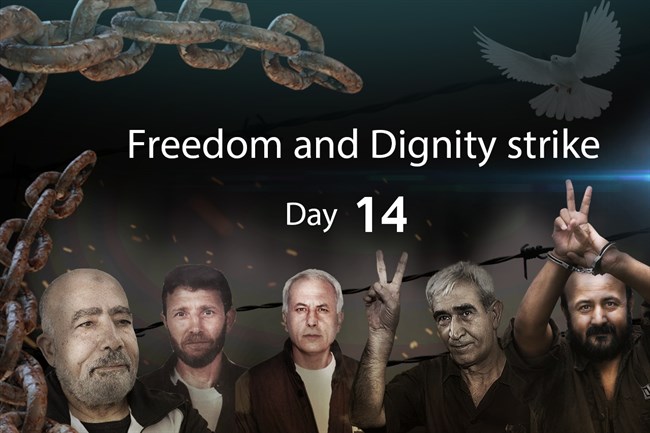 Freedom and Dignity strike, Day 14 – Some of Palestine’s most high profile prisoners. From right to left, Marwan Barghouthi, Ahmad Saadat, Karim Yunis, Nael Barghouthi, Fouad Shubaki.
Freedom and Dignity strike, Day 14 – Some of Palestine’s most high profile prisoners. From right to left, Marwan Barghouthi, Ahmad Saadat, Karim Yunis, Nael Barghouthi, Fouad Shubaki.
Ramallah, 4 Sya’ban 1438/1 May 2017 (MINA) — Some 1,500 Palestinian prisoners out of approximately 6,300 Palestinians held by Israel entered the 14th day of an open-ended hunger strike on Sunday, with Israeli prison authorities ramping up punitive measures in an attempt to pressure prisoners to break their strikes — as the health of hunger strikers continued to decline, Ma’an news reported.
The media committee for the “Freedom and Dignity strike,” formed by the Palestinian Committee of Prisoners’ Affairs and the Palestinian Prisoner’s Society (PPS), announced that preliminary efforts to start negotiations between hunger strikers and the Israeli Prison Service (IPS) began Saturday.
Also Read: Israeli Airstrikes Kill and Injure Dozens in Gaza City’s Zeitoun Neighborhood
According to the committee, IPS said negotiations would be based on the condition that they exclude Marwan Barghouthi, a prominent imprisoned member of the Fatah movement who is leading the strike.
Head of PPS Qaddura Fares insisted that Israeli authorities involve Barghouthi. “A straight line is the shortest distance between two points,” he said.
Fares urged the Palestinian people to remain determined in the battle to achieve the hunger strike’s demands, which include bringing an end to the torture, ill treatment, and medical neglect of Palestinians prisoners by Israel.
In response to a request for comment, IPS spokesperson Hana Herbst denied that IPS would be involved with any negotiations, saying: “The Israel Prison Service manages prisoners and their living conditions and does not negotiate with prisoners.”
Also Read: Over 170 NGOs Demand End to Israeli Military-Controlled Aid Distribution in Ga
The media committee also reported Sunday that IPS forces assaulted hunger-striking prisoner Nasser Uweis, who is held in a solitary confinement cell in Ramla prison. Uweis was sentenced to life in prison in 2002.
Continued suppressive measures
Meanwhile, IPS has continued suppressive measures against hunger striking prisoners, notably moving Karim Yunis, the longest-serving Palestinian prisoner, from a solitary confinement cell in al-Jalama prison in Haifa — where he was placed on the first day of the hunger strike — to a solitary confinement cell in Gilboa prison in Nazareth some 50 kilometers away.
An IPS spokesperson declined to provide justification for the transfer.
Since the the launch of the strike, IPS has continuously been transferring hunger strikers into solitary confinement and between different Israeli prisons in an attempt to separate hunger strikers from one another and break the strike.
Also Read: UNRWA Calls for End to GHF’s Operations, 500 Gazans Have been Killed
The media committee said that IPS has continued to ban lawyers from visiting Palestinian prisoners on hunger strike, except at Ofer prison in the central occupied West Bank district of Ramallah and Ashkelon prison in southern Israel.
A hearing has been scheduled at the Israeli Supreme Court for May 3, following a petition submitted by lawyers to secure their right to visit the hunger-striking detainees, according to the committee.
Meanwhile, PPS lawyer Khalid Mahajna appealed IPS’s decision to ban lawyer visitations at the Israeli magistrate court in Beersheba on Sunday, on behalf of Mujahid Hamid and Haroun Ayyad, who are held at Ashkelon prison, and Ali Elayyan who is held at Nafha prison.
The Israeli court said it would look into the appeals on Thursday, May 4. urday, (T/RS5/RS!)
Also Read: Hamas Calls for Mass Mobilization to Defend Al-Aqsa Mosque
Mi’raj Ilamic News Agency (MINA)
















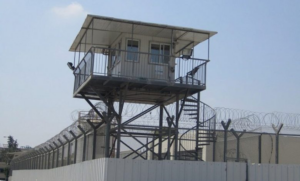
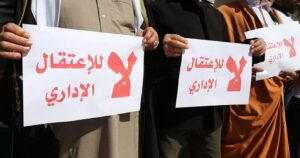

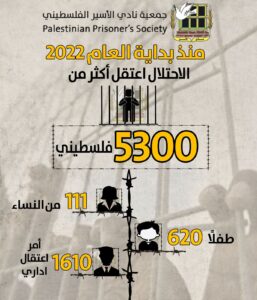





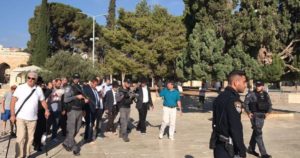





 Mina Indonesia
Mina Indonesia Mina Arabic
Mina Arabic